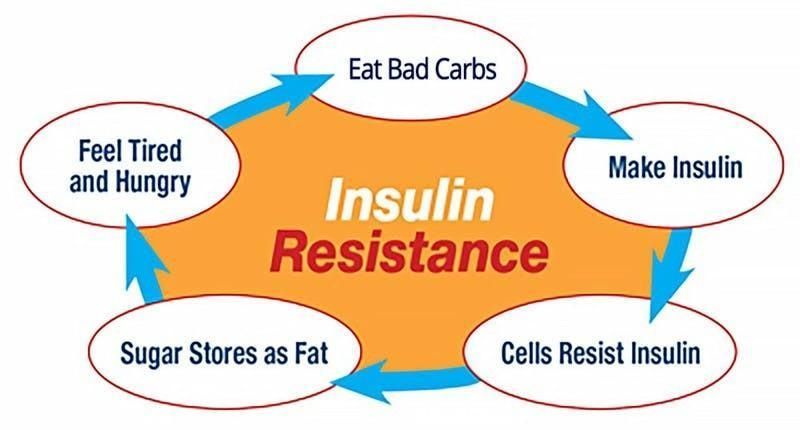Weight loss and Insulin Resistance

Patients often come to me saying, I have insulin resistance and need to lose weight but the trouble is I can't lose! This is exactly true! You are in a catch 22 situation. Losing weight will improve your insulin resistance but you can't lose!
Why is it so hard to lose weight when you have insulin resistance?
Insulin is a hormone that helps regulate sugar (aka glucose). Think of insulin as the Amazon delivery guy and the package is glucose. The cells in your body is your house. When you have insuin resistance, you start to ignore the knocks from Amazon. You just get so many packages a day you dont feel like answering the door. So your package just sits outside. This is what happens in your body when your cells ignore insulin. Glucose sits outside for awhile. It eventually makes it inside the cell but the process is inefficient. This slows the metabolism.
Cells use glucose for their main sources of energy. Excess glucose is stored as fat. So when you have high (excess) glucose (and thus high insulin) your body will store fat. So the cycle of weight gain for the insulin resistance patient is very difficult to break once you have the metabolic derangement.
What are my medical options to lose weight?
There are several different medications for insulin resistance but only a few that have seen great success. At MyJourneyMD, for our insulin resistant patients we will review your medical history to determine which medication is best for you. Commonly we will choose a GLP-1 receptor agnoist such as semaglutide because of its high success rate and its FDA approval for chronic obesity.
What are my evidence based non medical options to lose weight?
Here are my top 3 non medical recommendations:
- Regular exercise has been proven to improve insulin sensitivity and help with weight loss. I recommend 30-45min walking at least 5 days a week to all of my patients but especially my insulin resistant patients.
- Intermittent fasting is a lifestyle that promotes a positive food relationship and has data to show its metabolic benefits including improvement in hormone levels such as insulin.
- Reduce your carbohydrate intake, especially highly processed sugars. The liver and pancreas are both very important in sugar metabolism and the evidence is clear - your liver hates these highly processed sugars. Remove them from your life and I promise you will see a metabolic benefit. The key is to be consistent. Just make the choice - I am a person that doesn't eat high fructose corn syrup. Done!






